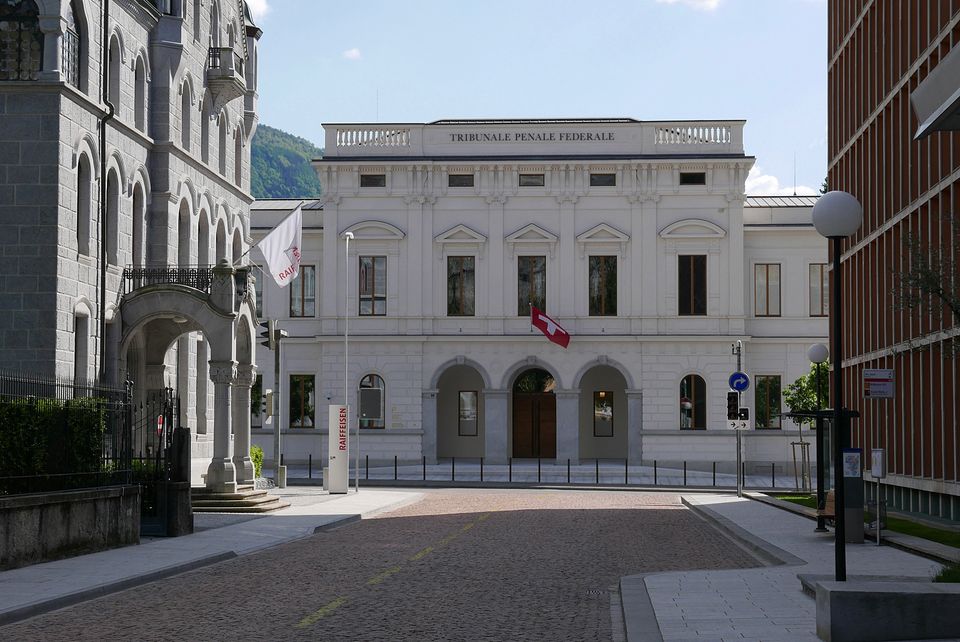
42 Years After Hama: Rifaat Al-Assad Indicted in Swiss Court
On March 12th, the Office of the Attorney General (OAG) of Switzerland indicted former Syrian Vice-President Rifaat Al-Assad for committing war crimes and crimes against humanity in connection with the 1982 Hama Massacre. The public release of the indictment comes after the issuance of an international warrant for his arrest in 2021.
Rifaat Al-Assad is the uncle of Bashar Al-Assad, the current president of Syria, and the brother of former president Hafiz Al-Assad. Starting in 1971, Rifaat was the commander of the Defense Companies (Saraya ad-Difa`), a specialized paramilitary organization that was independent from the Syrian Arab Army. During the late 70s and early 80s, the Syrian government increasingly faced opposition from Islamist factions, which included the Syrian Muslim Brotherhood. In February 1982, an estimated 200-500 militants affiliated with the opposition took control of Hama. President Hafiz Al-Assad then ordered a military response, and dispatched Rifaat in his role as commander of the Defense Companies to oversee the operation.
The siege of Hama lasted for 27 days. Syrian government forces, led by the Defense Companies commanded by Rifaat, used air power and tanks to destroy large swaths of the city. Around two-thirds of Hama’s neighborhoods were destroyed during this time. Soldiers were dispatched to go door-to-door to hunt for militants, indiscriminately killing civilians along the way. Although estimates vary, anywhere between 10,000 and 40,000 are thought to have been killed; many thousands more were subject to enforced disappearances. The vast majority of those killed were civilians, while many others were detained, tortured, and executed on suspicion of being affiliated with the Muslim Brotherhood. The 1982 Hama Massacre was intended as a brutal, repressive measure to signal that any opposition to the regime was intolerable. To that end, Rifaat boasted about the number of casualties that his forces killed. Until the 2011 revolution, the Hama massacre was only mentioned euphemistically by average Syrians, and the regime did not publicly speak about the uprising or the military response, letting its silence reign supreme.
After a fall-out with the then-president Hafiz Al-Assad over an attempted coup d’etat in 1984, Rifaat was removed from his command position and given the largely ceremonial post of Vice-President. Increasingly marginalized within the Syrian political scene, he fled to Europe and lived in exile primarily in France. However, he was allowed to return to Syria in 2021 to avoid a four year prison sentence connected with a French investigation into his financial crimes. While Rifaat was living in France, the international justice NGO Trial International filed a criminal denunciation in neighboring Switzerland against him, which came to fruition in the form of the March 12th indictment.
The indictment details Rifaat’s alleged involvement in numerous homicides, acts of torture, cruel treatment, and illegal detention committed during the 1982 siege of Hama. The alleged facts constitute violations of Article 109 of Switzerland’s Military Criminal Code, which was in force at the time of the Hama Massacre, and are also considered war crimes under Article 3 of the Geneva conventions. Swiss law applies the principle of universal jurisdiction for certain crimes under international law, which allows the state to investigate and prosecute individuals who have committed such crimes, even when outside of Switzerland and by non-Swiss nationals.
Although Rifaat Al-Assad is unlikely to come to Switzerland, the trial may proceed with him in absentia. The trial will face other obstacles, including adducing sufficient, reliable evidence, particularly witness testimony, given the events occurred over 40 years ago. Fortunately, there is no statute of limitations for war crimes that Rifaat’s defense can utilize in court.
The notorious Hama massacre has never been the subject of criminal proceedings since it was never pursued domestically in Syria, and it predates modern international criminal justice efforts. The ad hoc Tribunals for the former Yugoslavia and Rwanda were created in the 1990s and the Rome Statute that created the International Criminal Court entered into force in 2002. Such courts cannot prosecute crimes that were committed prior to their creation. In any event, Syria has not ratified the Rome Statute and therefore is not generally subject to the jurisdiction of the ICC.
All of that said, the Swiss trial can represent an important step that will shed light on the Hama massacre and encourage efforts started in the 2011 protests to break the taboo of discussing the crimes that occurred there. It can also serve as a model in future criminal investigations of serious war crimes that occurred during the Syrian uprisings. Observers will also be keen to record any new accounts that have been uncovered by Swiss investigators.
___________________________
For more information or to provide feedback, please contact SJAC at [email protected] and follow us on Facebook and Twitter. Subscribe to SJAC’s newsletter for updates on our work